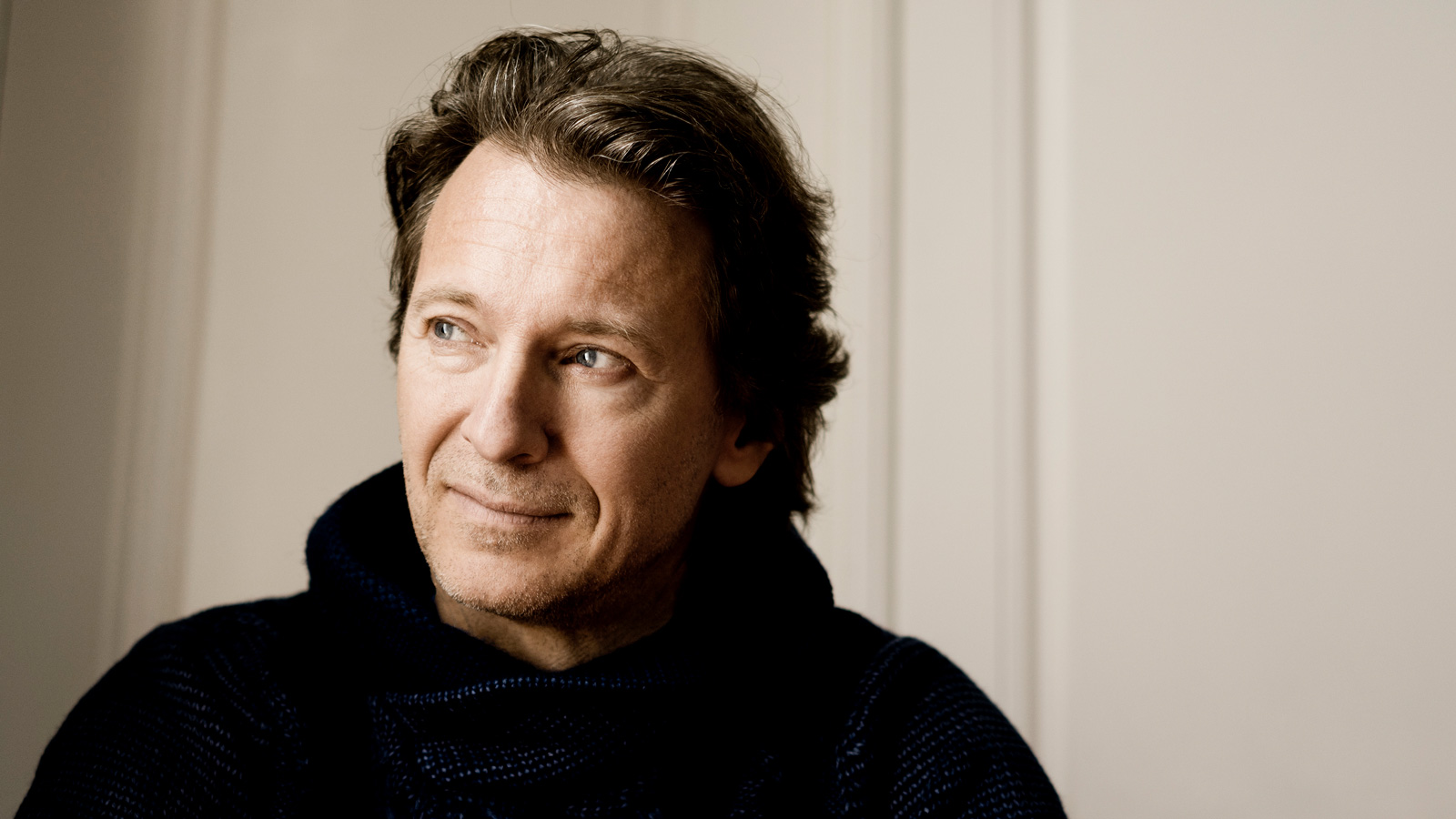Don Quixote
Gulbenkian Orchestra
Event Slider
Date
- / Cancelled / Sold out
Location
Grand Auditorium Calouste Gulbenkian FoundationPricing
25% – Under 30
10% – Over 65
Cartão Gulbenkian:
50% – Under 30
15% – Over 65
- Conductor
- Cello
- Viola
-
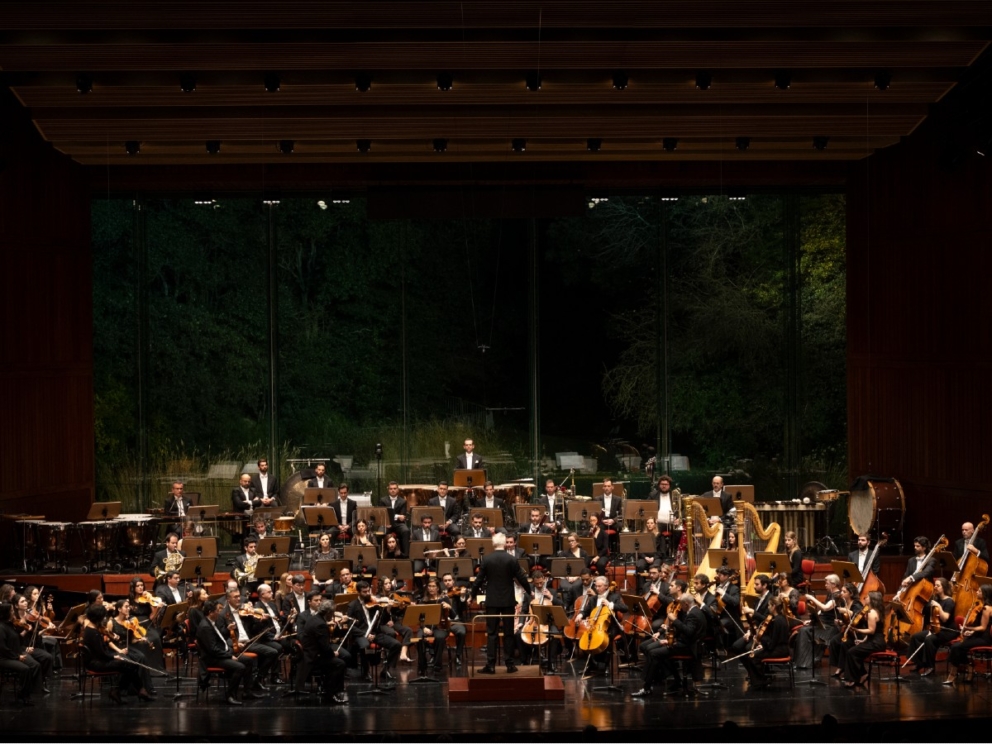
Gulbenkian Orchestra
In 1962, the Calouste Gulbenkian Foundation decided to establish a permanent orchestral ensemble. Originally with only twelve musicians (strings and continuo) it was named “Orquestra de Câmara Gulbenkian”. This collective was successively enlarged and today the “Orquestra Gulbenkian” (the name it has adopted since 1971) has a permanent body of sixty instrumentalists, a number that can be expanded depending on the repertoire.
This structure allows the Gulbenkian Orchestra to interpret works from the Baroque and Classical periods, a significant part of 19th century orchestral literature and much of the music of the 20th century, including works belonging to the current repertoire of the traditional symphonic orchestras. In each season, the orchestra performs on a regular series of concerts at the Gulbenkian Grand Auditorium in Lisbon, where it has had the opportunity of working together with some of leading names of the world of music (conductors and soloists). It has also performed on numerous locations all over Portugal, in an effort to decentralize music and culture.
The orchestra has been constantly expanding its activities in the international level, performing in Europe, Asia Africa, and the Americas. In the recording field, Orquestra Gulbenkian is associated to labels as Philips, Deutsche Grammophon, Hyperion, Teldec, Erato, Adès, Nimbus, Lyrinx, Naïve and Pentatone, among others, and this activity was recognized with several international prizes.
-
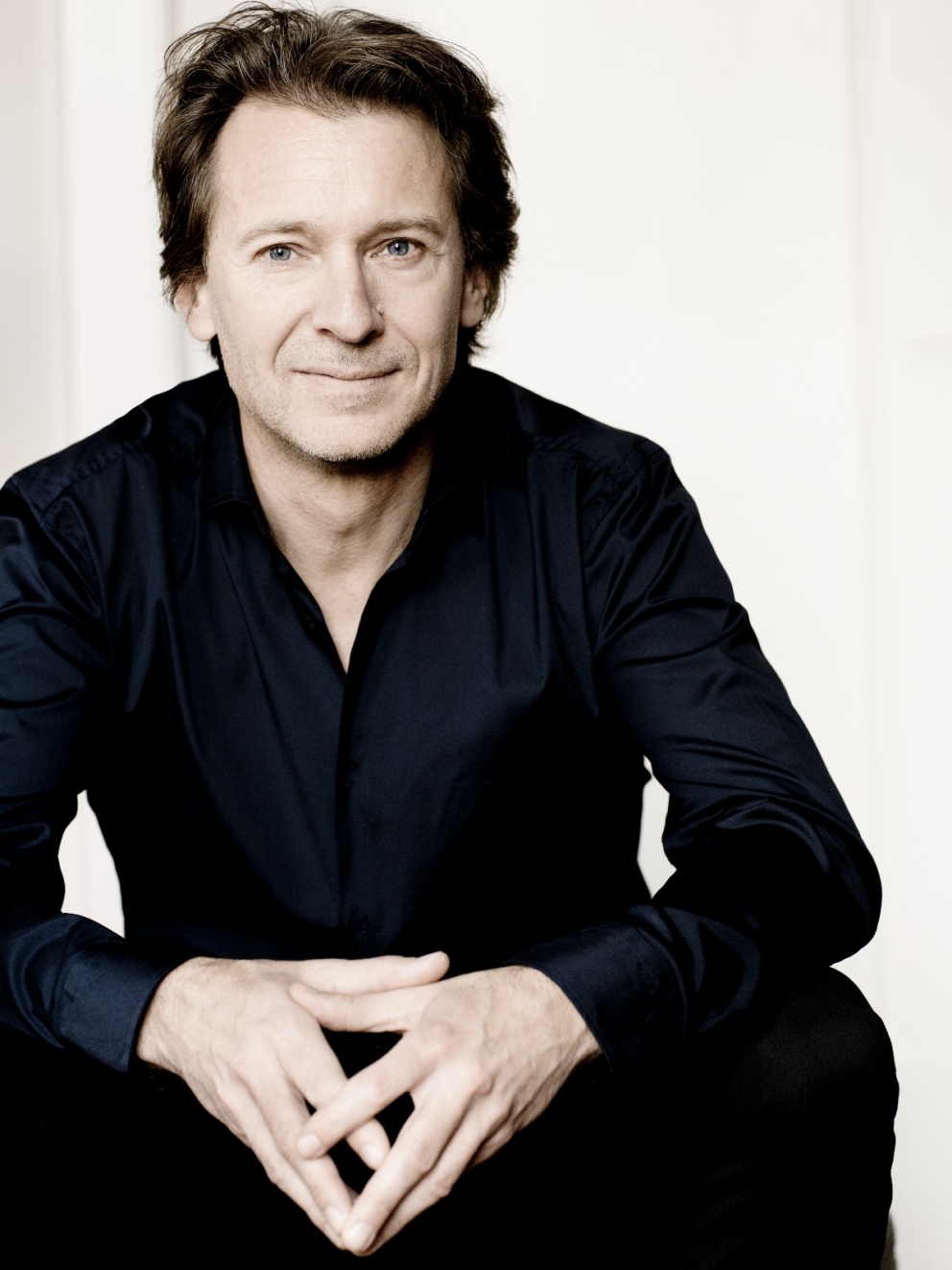
Marc Albrecht
Conductor
Marc Albrecht is one of the most exciting conductors of his generation. He is in demand internationally as a conductor of the German-Austrian late Romantic repertoire from Wagner and Strauss to Zemlinsky, Schreker and Korngold, and cultivates with conviction the entire spectrum from Mozart to contemporary music.
Albrecht’s work with the orchestra is rooted in a chamber music approach; he loves and knows how to utilise the infinite sound possibilities of the large symphony orchestra, whilst simultaneously always allowing the sound to blend with the intimacy of the chamber orchestra. Even in the densely orchestrated symphonies of Bruckner and Mahler, Albrecht succeeds in an astonishing way in making the structure clear and letting the music breathe. With Marc Albrecht, an analytical approach and emotional music-making go hand in hand.
His artistic work has been honoured numerous times: In October 2021 with the OPUS KLASSIK as "Conductor of the Year" for the recording of Zemlinsky's "The Mermaid" with the Netherlands Philharmonic Orchestra (Pentatone), in 2020 the appointment as "Knight of the Order of the Dutch Lion" as well as the award of the "Prix d'Amis" of the Dutch National Opera, two of the most prestigious prizes in the Netherlands. In the same year, Marc Albrecht received another OPUS KLASSIK in the category "Best Opera Recording of the 20th/21st Century" for the DVD of Korngold's "The Miracle of Heliane" at the Deutsche Oper Berlin, released by NAXOS. He was named "Conductor of the Year" by the International Opera Awards in 2019 and the Dutch National Opera's 2017 production of Alban Berg's "Wozzeck" was nominated for a GRAMMY in the category "Best Opera Recording". In addition, in 2016 the Dutch National Opera was named Europe's "Opera House of the Year" during his tenure as chief conductor.
In the 2023/24 season, selected guest conducting engagements will take Marc Albrecht to the opera houses of Berlin, Cologne, Rome and Dresden; he will also make guest appearances with the Netherlands Philharmonic Orchestra, Philharmonia Zürich, Konzerthausorchester Berlin, Orquesta de València, Orquestra Gulbenkian and the Taiwan Philharmonic, among others.
Albrecht was deeply influenced by his mentor Claudio Abbado, as whose assistant he helped to build up and supervise the Gustav Mahler Youth Orchestra over a period of five years, following his studies in Vienna and his first répétiteur posts at the Vienna and Hamburg State Operas. He was appointed First Kapellmeister at the Saxon State Opera in Dresden and in 1995, at the age of 30, one of Germany's youngest general music directors at the Staatstheater Darmstadt.
In 2006 he took over the direction of the Orchestre Philharmonique de Strasbourg, and in 2011 moved to Amsterdam, where opera once again became the focus of his work. In 2016, his contract was extended until 2020. Since summer 2020, Marc Albrecht has been working as a freelance conductor with various orchestras and opera houses on all continents.
In Amsterdam, he has conducted Mozart's "The Magic Flute" and "Don Giovanni", Enescu's "Oedipe", Beethoven's "Fidelio", Verdi's "Macbeth", Wagner's "Meistersinger" and "Tannhäuser", "Elektra" by Strauss, "Der Schatzgräber" by Schreker, "The Gambler" by Prokofiev and the world premiere of Manfred Trojahn's "Orest", among others. Other milestones include the first staged version of Schönberg's "Gurre-Lieder", directed by Pierre Audi in September 2014, and Pierre Audi's legendary production of Wagner's "Die Walküre".
As a guest conductor, Albrecht has conducted operas by composers as diverse as Berlioz and Messiaen, Stravinsky, Mussorgsky and Martinů, B. A. Zimmermann and Zemlinsky, Berg, Henze and Wagner at the Deutsche Oper Berlin, in Brussels, Paris and Barcelona, the Royal Opera House in Covent Garden, at the Salzburg Festival, and from 2003 to 2006 at the Bayreuth Festival.
Marc Albrecht appreciates the intensive collaboration with directors in opera productions, and particularly successful collaborations include those with Katie Mitchell and Christof Loy, Claus Guth, Herbert Fritsch and Krzysztof Warlikowski.
In addition, Albrecht has conducted the Berliner Philharmoniker, the Concertgebouworkest, the Münchner Philharmoniker, the Orchestra dell’ Accademia Nazionale di Santa Cecilia, the Orchestre National de France, the NHK Symphony Orchestra Tokyo and the orchestras in Cleveland, Dallas, Stockholm, Oslo, Turin, Rotterdam and Birmingham.
Marc Albrecht has recorded extensively with the Netherlands Philharmonic Orchestra (Korngold, Ravel, Dukas, Koechlin, Berg, Schumann, Dvořák, Mahler, Strauss, Brahms/Schönberg) on the Pentatone label, and recordings of opera productions in Amsterdam on the Challenge label. In summer 2020, he presented Alexander Zemlinky's "The Mermaid" on his most recent Pentatone recording, for which he received the OPUS KLASSIK as "Conductor of the Year".
-
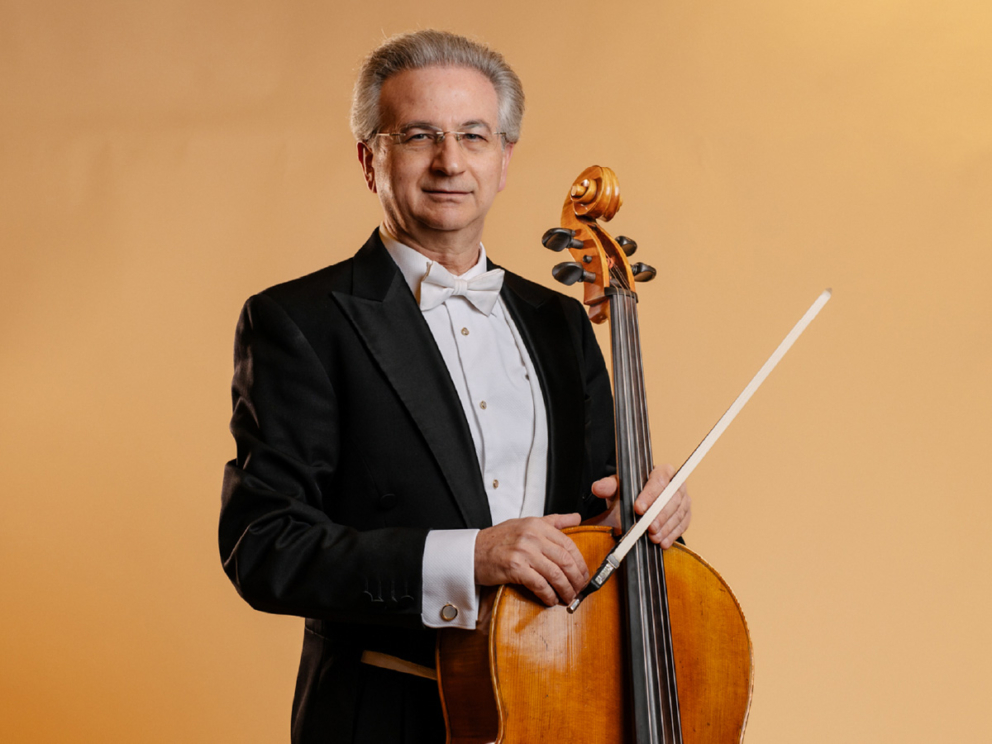
Varoujan Bartikian
Cello
Varoujan Bartikian was born in Armenia and began his studies at the Tchaikovsky Special Music School under the guidance of Alexander Tchauchian. From 1978 to 1983, he attended the Komitas Conservatory of Music in Yerevan. In 1977 he won the Transcaucasian Cello Competition in Tbilisi, and in 1981 he participated in the Tbilisi Soviet Republic Competition, winning 3rd Prize and a special prize for his performance of the 24 Preludes by the Georgian composer Sulkan Tsintsadze. After graduating in 1983, he continued his education, obtaining a Master's Degree in Cello and in Music Sciences, in the areas of Theory of Interpretation and Teaching Methodology.
Varoujan Bartikian is a founding member of the Yerevan String Quartet, formed in 1982. This quartet won the 1983 Borodin Competition. In 1988 he began to teach cello at the Komitas Conservatory, a position he held until he moved to Portugal in 1989, when he joined the Gulbenkian Orchestra, with which he has also played as a soloist. He has played with the Armenian Philharmonic Orchestra under the direction of John Nelson, and recorded for RDP - Antena 2.
In 1991, he formed the Bartikian Trio, with pianist Michel Gal and clarinettist Esther Gerogie. In 2013, he founded Trio Aeternus with violinist Alexander Stewart and pianist Lucjan Luc. He has recorded several works by António Victorino d'Almeida for the Numérica label.
Varoujan Bartikian is 1st Cello Soloist of the Gulbenkian Orchestra and teaches cello at Escola Superior de Música de Lisboa.
-
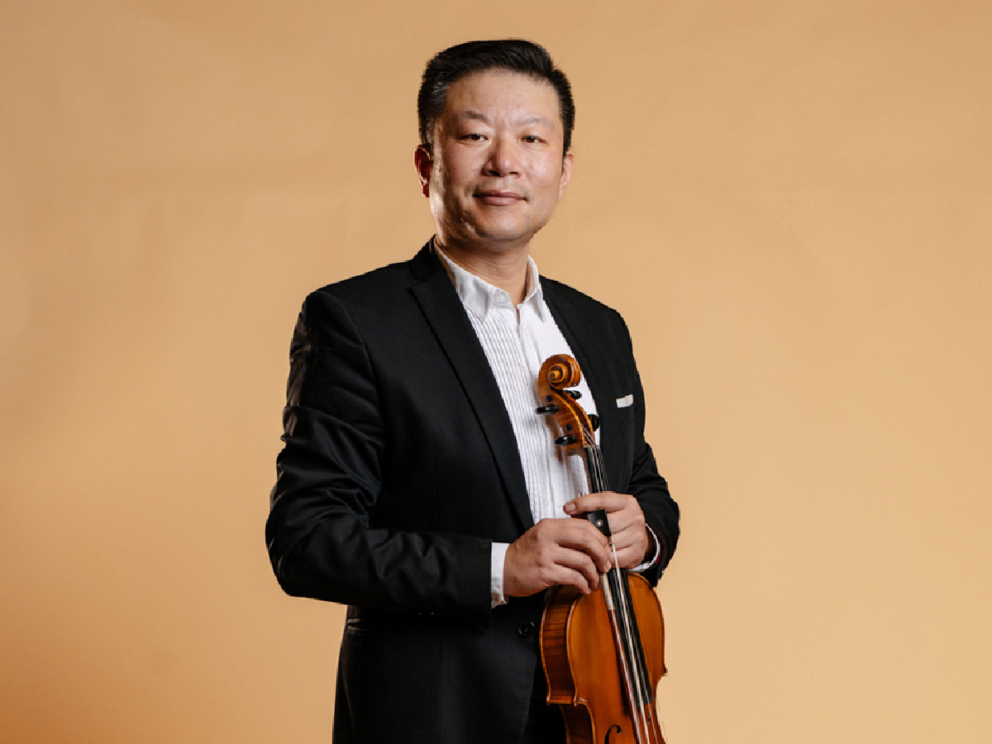
Lu Zheng
Viola
Lu Zheng was born in August 1977 in Tian Jin, China. He began violin and viola lessons at the age of six. Between 1989 and 1997, he attended the Central Conservatory of Music in Beijing, where he completed further and advanced viola studies. He was Principal Viola of the China Youth Orchestra between 1994 and 1997. In 1998, he was one of the founding members of the Chinese Quartet, and performed with this ensemble at the Évora and Algarve Music Festivals, at the invitation of the Fundação Oriente. In the meantime, he took advanced classes in chamber music with Max Rabinovitsj and in viola with Barbara Friedhoff and Bruno Pasquier.
Between 2000 and 2004, Lu Zheng was Soloist B with the Orquestra Metropolitana de Lisboa. He is a teacher of viola and chamber music and regularly performs solo recitals and chamber music. He joined the Gulbenkian Orchestra in 2005.
Richard Strauss
Don Quixote, op. 35
— Intermission 20 min —
Richard Strauss
Sinfonia Domestica, op. 53
Richard Strauss liked to start from narratives to stimulate his creativity, often relying on literary texts as a basis for creating orchestral imagery. This process was at the origin of several of his symphonic poems, such as Don Quixote, based on Cervantes’ greatest work. The walking knight would be fantasised by Strauss in the “voice” of a cello, while his faithful squire gains body through the bowed viola. The adventures of one of the greatest protagonists in the history of literature would gain a place in one of the German composer’s most admired works.
Sponsor Gulbenkian Music
The Calouste Gulbenkian Foundation reserves the right to collect and keep records of images, sounds and voice for the diffusion and preservation of the memory of its cultural and artistic activity. For further information, please contact us through the Information Request form.
